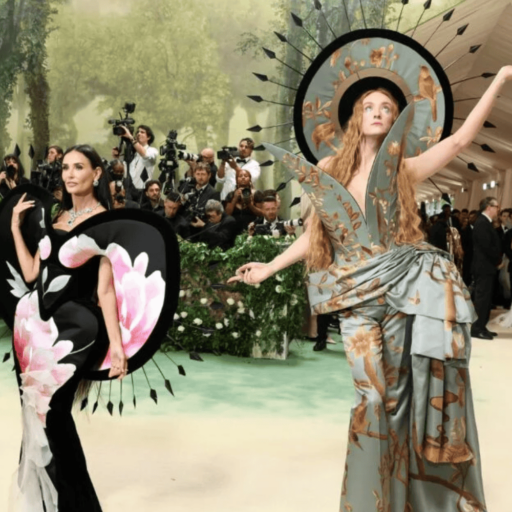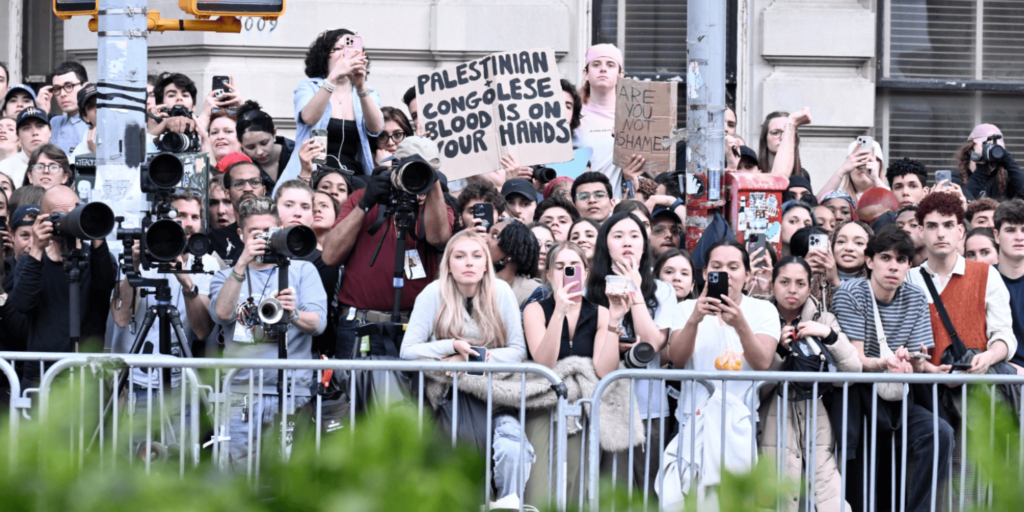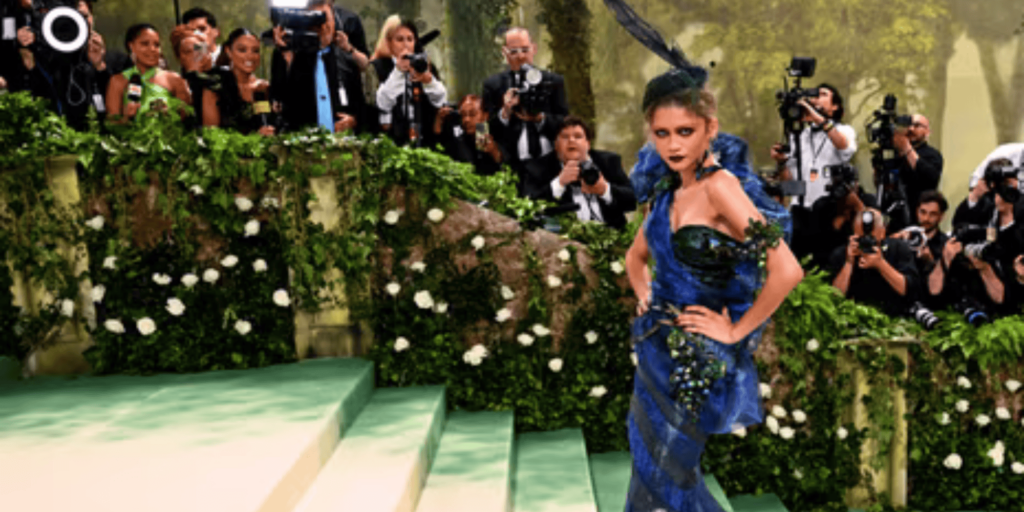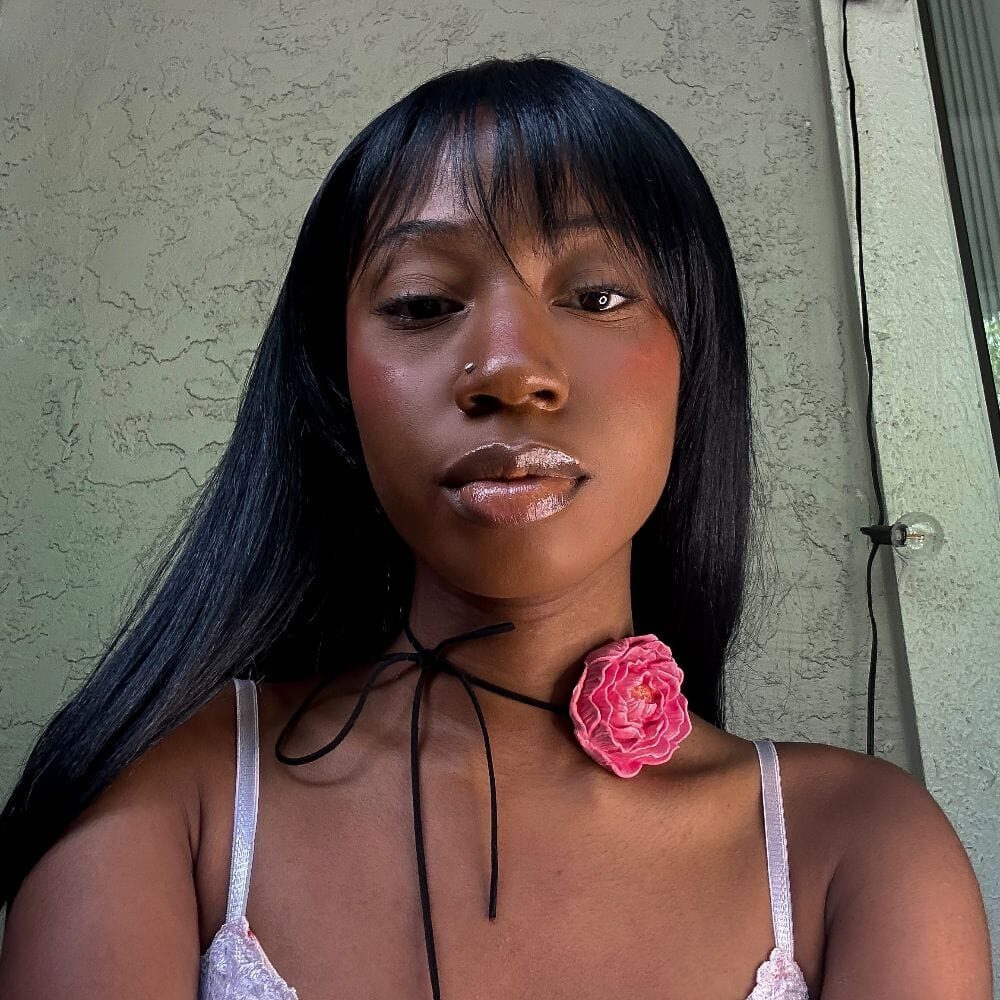
The Met Gala 2024: Belle Law’s Experience and the “Digitine” Phenomenon
It’s 4:45pm in New York City on the 6th May, the first Monday of the month. I am hot and sweaty as I run towards cheers of adoration coming from the crowd up the street, all gazing up at one of the hotels currently housing their Met Gala idols. I strategically place myself on the raised pavement and stand on my tiptoes, looking through a gap in the sea of shoulders and backs of heads. The atmosphere is electric, everyone excited to catch a glimpse of expensive fabric, or, even better, a celebrity’s limb, at one of the most prestigious events in fashion.
Two black vans pull up and block the view, disappointed mutters swarm throughout the crowd. Some stay, hoping the van will move. Eventually, I’m dragged away by my sister as we begin to hunt down another spot.

We’re on the opposite side of the street, where the cars transporting guests to the Met Gala will drive by. Tension fills the air as we eagerly wait, my own stomach in knots, excited to witness the looks adhering to the “Garden of Time” theme inspired by J.G. Ballard’s 1962 short story of the same title, part of The Metropolitan Museum of Art’s “Sleeping Beauties: Reawakening Fashion” exhibition. A scream pierces the anticipation as cameras flash; I catch streaks of silver, crème, pink, black, as faceless celebrities step into their cars. I hear mentions of “Kylie” and “Kendall”, but I resort to viewing the clothes mostly through the camera zoom on a girl’s iPhone 15. We wave at the cars driving past with their blacked out windows, check online to see who we spotted, and take paracetamol to numb the ache from standing. In all honesty my favourite part came not from the adrenalin of getting to watch celebrities, but in indulging in a collective appreciation of fashion, sharing with each other our favourite looks, our own tastes, what we liked and didn’t.
It’s now 7:15pm, my body is in agony and my sister and I have a long walk ahead of us. As we turn to leave, a surge of people fill the road, holding up the Palestinian flag and chanting messages of solidarity. As I read the sign “All eyes on Rafah”, it is a stark reminder that as the world watches one of the most elite events of the year, 1.4 million Palestinian refugees are being cornered in Rafah as Israel continues its military assault. With over 30,000 people killed in Gaza according to the local Ministry of Health, the sheer frivolity of the Met Gala has never been so poignant in the face of this humanitarian crises.

Exhausted after navigating closed-off roads in a city that I’ve only known for three days, I collapse on the bed of my hotel room. I open up my phone for five minutes of mindless scrolling on TikTok; let them eat cake, an influencer mouths (from @haleyybaylee in a now deleted video), dressed head to toe for the Met Gala in a giant flowery frock. Let them eat cake, a sound taken from Sofia Coppola’s Marie Antoinette (2006), but its deafness astounds me as I watch the video a couple more times. I continue to scroll and see Sabrina Carpenter, posting her own Met Gala look with a similar sound, which states to “buy Vogue instead of dinner”. With resources in Gaza dwindling and with the UN Court forcibly ordering Israel to unblock food aid in late March, these seemingly light-hearted videos appear much more sinister. Timings are critical, and it appears that these celebrities and their publicity teams are unable to look beyond their own bubble to a broader sociopolitical context.

Introducing the “digitine”, a term founded by TikTok user @ladyfromtheoutside, or Rae, who calls for a “digital guillotine” in which we, as consumers, collectively block and deplatform celebrities who do not use their powerful influence for good. Presumably inspired by the French Revolution and Marie Antoinette’s own beheading by guillotine, this “digitine” has already started to take effect, with influencers like Haley Kalil (@haleyybaylee) celebrating 10 million followers on TikTok only to quickly lose this number overnight. Additionally, Brittany Broski, is another influencer who has been subjected to the “digitine”, criticised for her performative activism and hypocritical stance on celebrities using their platform to highlight important issues, yet staying silent on the situation in Gaza. Whilst I strongly encourage that we should not look towards these celebrities or influencers for any expertise on global matters, their refusal to spread awareness, highlight charities, show solidarity and support for causes is notable.
Through this cultural “digitine” it seems that the internet will have its cake, and eat it too.
Enjoyed this story? Support independent gaming and online news by purchasing the latest issue of G.URL. Unlock exclusive content, interviews, and features that celebrate feminine creatives. Get your copy of the physical or digital magazine today!










